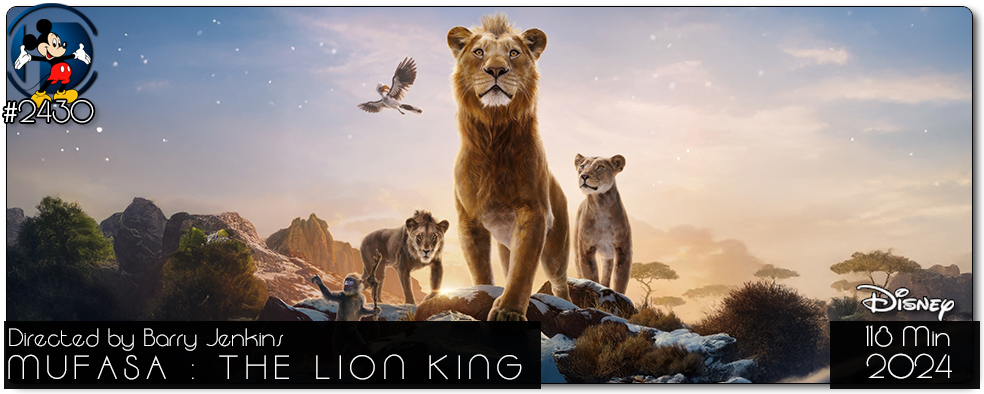Movie Review – Mufasa: The Lion King
Principal Cast : Aaron Pierre, Kelvin Harrison, John Kani, Seth Rogen, Billy Eichner, Tiffany Boone, Donald Glover, Mads Mikkelsen, Thandiwe Newton, Lennie James, Blue Ivy Carter, Beyonce Knowles-Carter, Preston Nyman, Anika Noni Rose, Keith David, Joanna Jones, Folake Olowofoyeku, Thuso Mbedu.
Synopsis: Mufasa, a cub lost and alone, meets a sympathetic lion named Taka, the heir to a royal bloodline. The chance meeting sets in motion an expansive journey of a group of misfits searching for their destiny.
********
Disney’s juggernaut IP live-action remake train continues to barrel at full speed into cinemas, never blinking in the face of generally tepid critical reviews when billion-dollar box office is assured thanks to the studio’s enormous cultural clout—more specifically for USians and their adoration of the associated theme parks dotting the globe. Barry Jenkins’ sequel to Jon Favreau’s bland-as-water The Lion King live-action/animated hybrid remake is simply more of the same. More mawkish sentimentality playing with established IP, a bag of new Lin-Manuel Miranda tunes, and some absolutely stellar visual effects animation alongside a tension-free screenplay make Mufasa: The Lion King a sequel-y prequel that feels like an obvious cash grab rather than any kind of propellant artistic achievement. As a movie, it’s perfectly serviceable without any of the wonder it so blatantly tries to infuse into the splendid visuals, and the enhanced anthropomorphism of the central animal characters is several steps above the Favreau adaptation. However, the emptiness of the story and stuck-in-first-gear arcs for these well-known characters limit the emotional heft of a tale that’s practically a foregone conclusion.
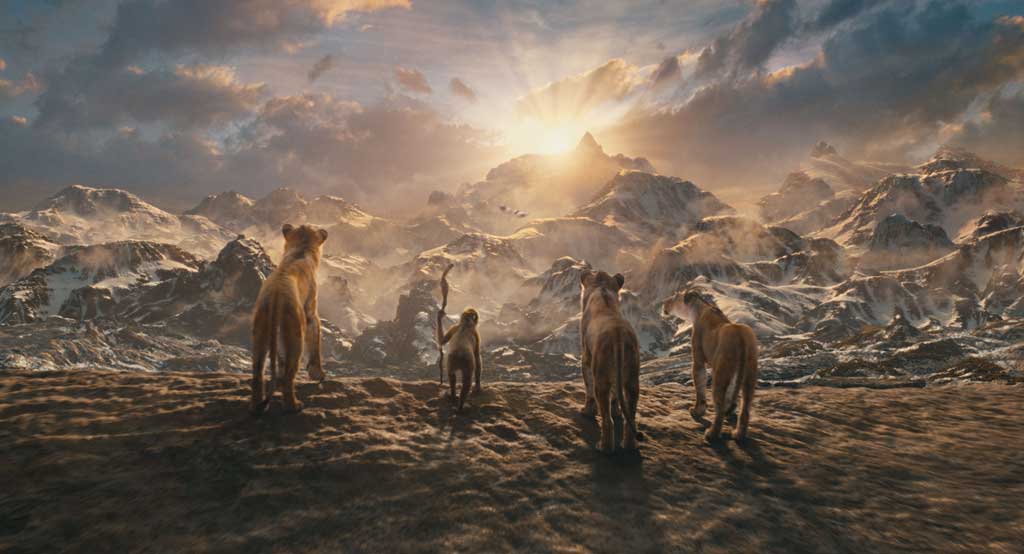
Plot synopsis courtesy of Wikipedia: The film explores the origin story of Simba’s father, Mufasa (voiced by Aaron Pierre), and his fraught relationship with his adoptive brother, Taka, later known as Scar (Kelvin Harrison Jr.). Framed as a tale told by Rafiki (John Kani) to Simba and Nala’s daughter Kiara (Blue Ivy Carter), the film follows Mufasa’s journey from an orphaned cub separated from his parents (Anika Noni Rose and Keith David) in a flood to his rise as king of the Pride Lands. Rescued by Taka and adopted into a royal pride led by Taka’s parents, Eshe (Thandiwe Newton) and Obasi (Lennie James), Mufasa and Taka form a brotherly bond that unravels due to jealousy and betrayal, particularly over their mutual affection for the lioness Sarabi (Tiffany Boone). Their quest for the mythical paradise Milele with allies like young Rafiki and Zazu (Preston Nyman) is threatened by the vengeful white lion Kiros (Mads Mikkelsen), leader of the Outsiders, whose pursuit forces Mufasa to confront Taka’s treachery and unite the animals of Milele in a climactic battle.
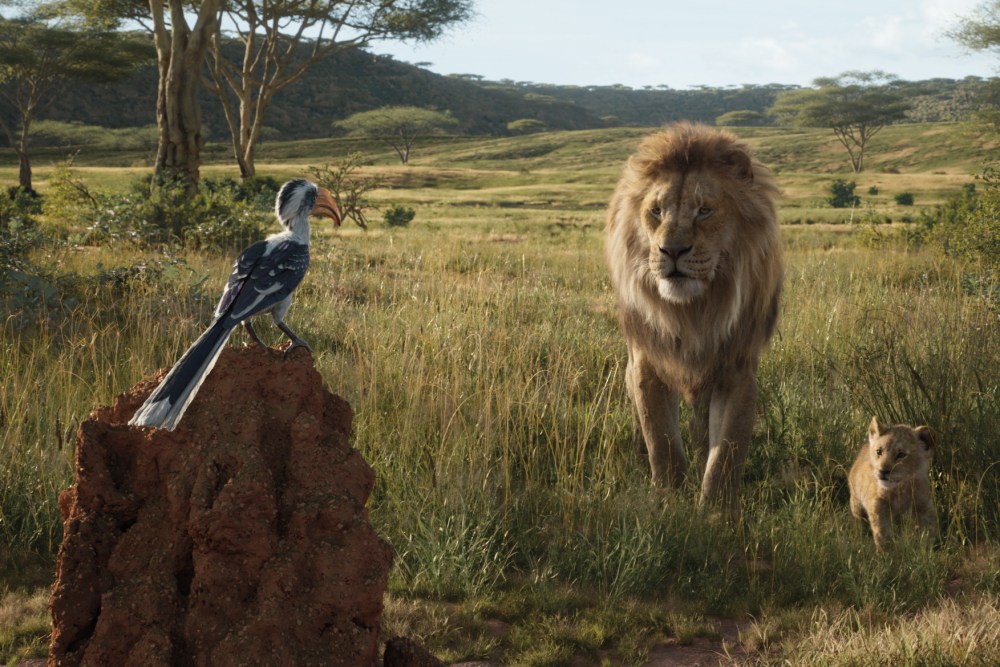
It’s fair to say that 1994’s animated The Lion King is arguably the crown jewel of Disney’s renaissance era, boasting a crossover appeal that solidified it as both a cultural phenomenon and a certified smash-hit soundtrack album. The combination of Hans Zimmer’s orchestrations and Elton John’s soaring vocals elevated a fairly simplified tundra-set drama into one of the most adored films in the Disney canon, if not the most successful. Jon Favreau’s remake in 2019 was incredibly successful despite being an astoundingly awful narrative project, and of course, the Mouse House greenlit a follow-up as soon as the dollar bills started rolling in. With Favreau engaged elsewhere with his multiple Star Wars projects, Disney tapped indie filmmaker Barry Jenkins (Moonlight) to helm the next instalment, obviously keen to establish a new live-action franchise, and brought back the Favreau film’s screenwriter, Jeff Nathanson, to continue the story. Or, not so much continue as press pause and tell a massive amount of flashbacks.
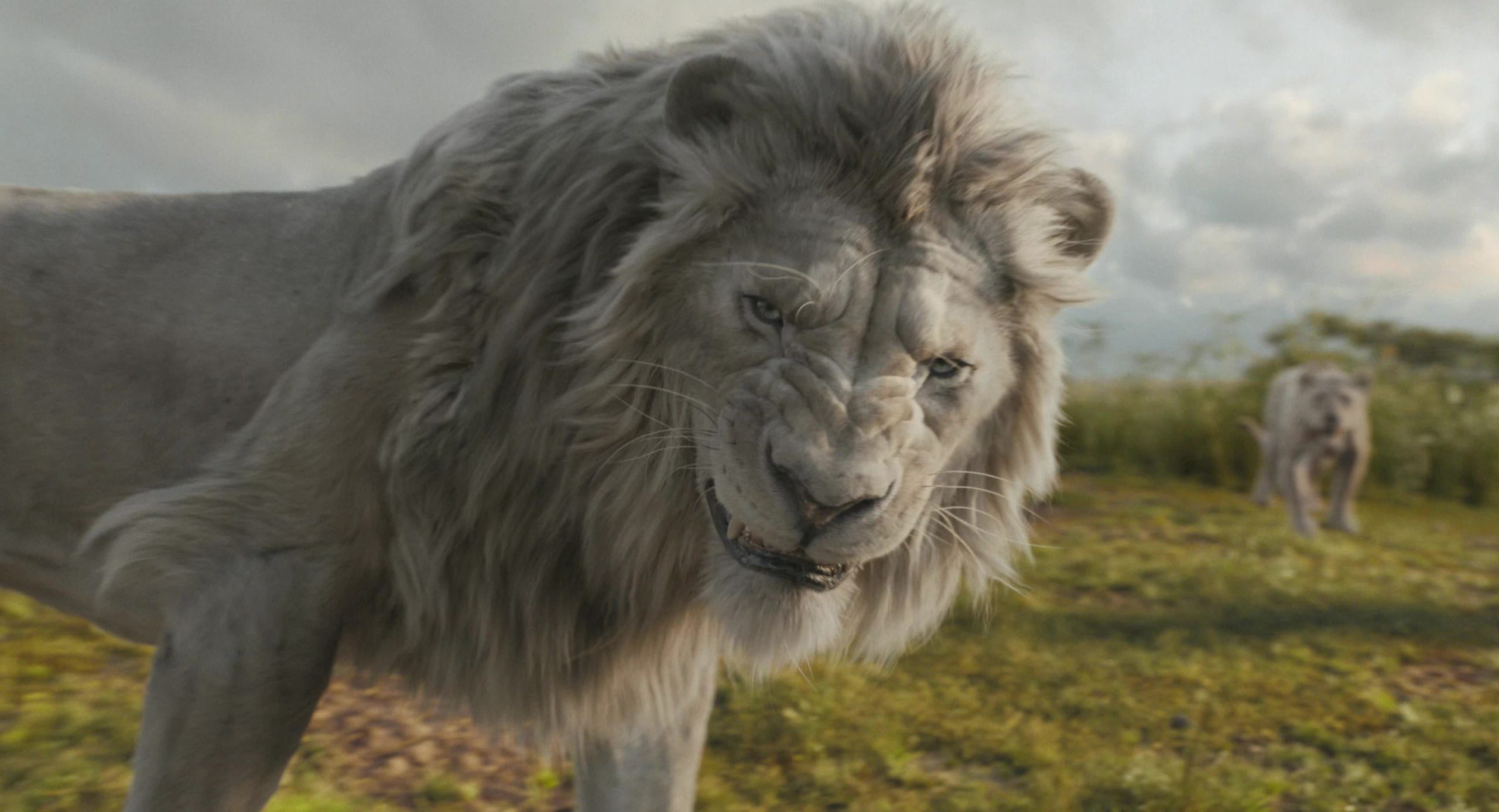
Whereas the original The Lion King had a number of direct-to-video sequels—of which the best is arguably The Lion King 1½—Jenkins and Nathanson seem to have been given carte blanche to take the story of Simba, Timon, and Pumbaa in any direction they wanted. So they made a film about Simba’s dad, Mufasa, which leads to the film’s subtle pre-title hat-tip to original voice artist James Earl Jones, who passed away prior to this film’s release, and gave us the backstory to the infamous enmity only hinted at in the original story. It’s a clumsy attempt to link both the past and future of the franchise, to be honest, with present-day Simba (voiced by Donald Glover) off having a new baby with Nala (Beyoncé), leaving Timon, Pumbaa, and Rafiki to regale Simba’s older cub with the tale of Mufasa and Taka—adoptive brothers who eventually become enemies of sorts. The linking between the historical Mufasa arc and the present day doesn’t feel as organic to the overall point of the movie as I’d have liked, and I continued to feel a real disengagement with the “present” storyline—most of which consists of silly kids’ jokes by Timon and Pumbaa—whereas the Mufasa/Taka arc actually engaged me.
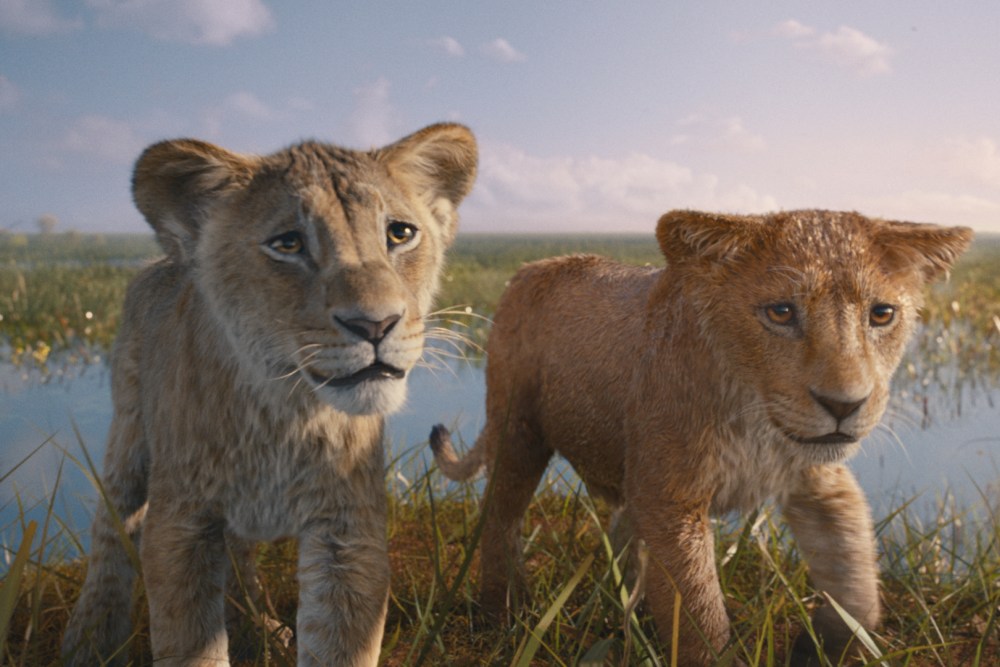
Troublingly, and as always with prequels to well-known films, the tension of any actions within the film was near non-existent because the audience knows exactly where the story needs to end up. A little like showing how Anakin Skywalker became Darth Vader, Jenkins’ Mufasa suffers the indignity of being a film in which character survival is a foregone conclusion, leaving any dramatic weight evaporated by our knowledge of what comes next. It’s fun to watch this all unfold, I guess, and the continued nods to the earlier films and ongoing motifs—Scar’s paw grab of Mufasa just as he falls into the antelope stampede becomes a recurring theme here, although overuse dilutes the impact—become tiresome, unearned nostalgia bumps. Mufasa leans heavily into repeated subtext—I guess it’s a circle of life thing?
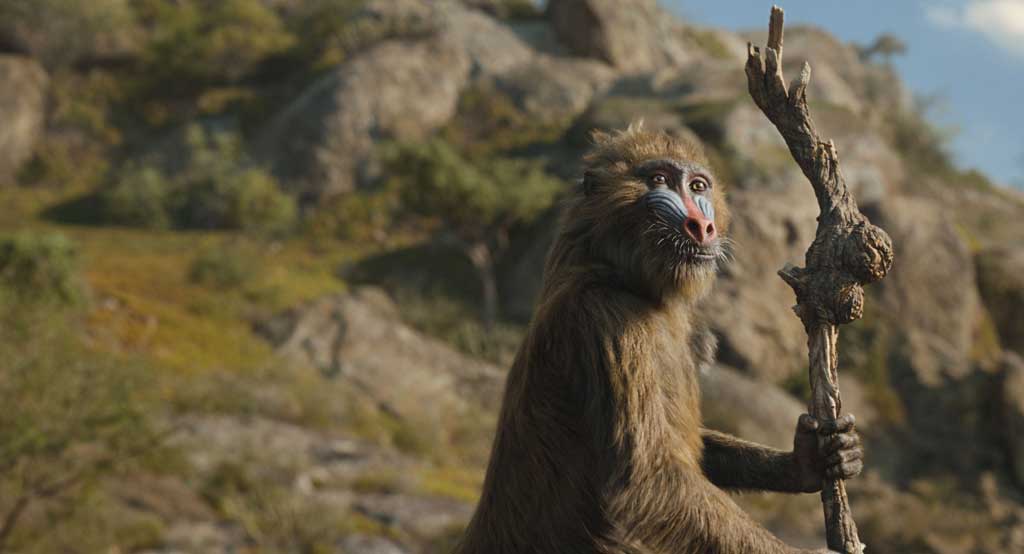
And for all his vaunted skills, Lin-Manuel Miranda’s songs are largely forgettable, trivial pap. Miranda, the man who gave us Hamilton, Moana, and Encanto, sounds like he’s phoning it in here, or at least hoping the majesty of the visuals or the prestige of the IP itself will do all the heavy lifting. The songs, like the soaring “Milele” or the villain’s “Bye Bye”, are cheery amusements but lack the impact of Elton John’s “Circle of Life” or “Be Prepared”. Every time a song kicks in, the life drains from the pacing and story. David Metzger’s orchestral score attempts to ape Hans Zimmer’s classic themes but isn’t as cathartic; interestingly, whenever the score does reprise a Zimmer theme from the original film, your heart actually aches for a return to such greatness.
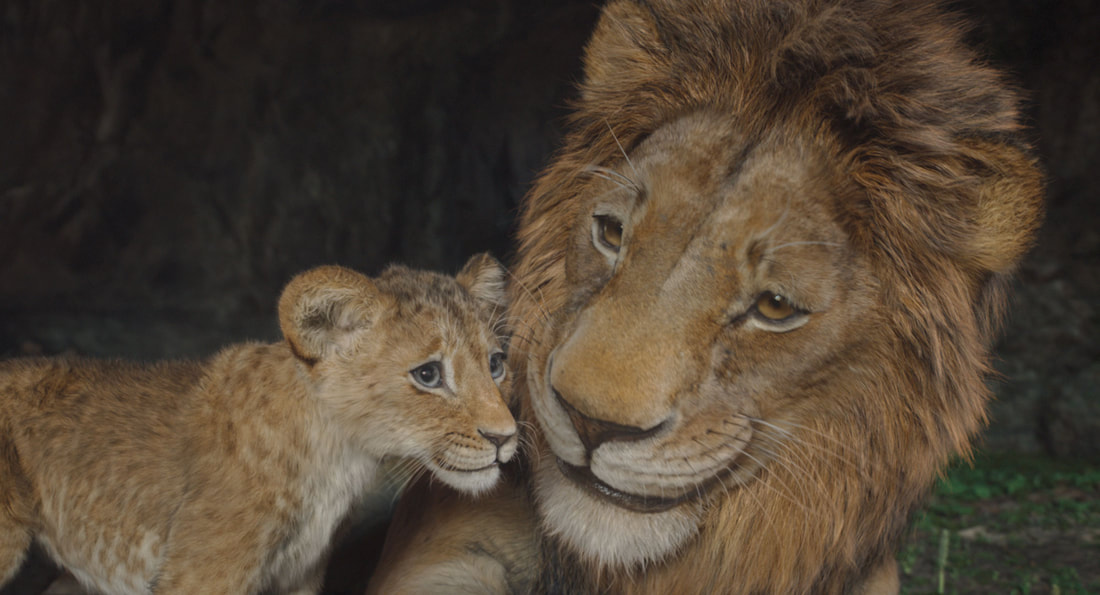
That said, the film does have some positives working in its favour. Notably, the animation is absolutely faultless again, and the visual design of the film is spectacular in every regard. The animation of the animals talking is better here than in Favreau’s film, with all of them given a higher level of anthropomorphism; this gives them more humanistic facial expressions that engage the viewer. Our connection to the young Mufasa and Taka is legitimised thanks to terrific voice work by Aaron Pierre (Rebel Ridge) and Kelvin Harrison Jr (The Trial of the Chicago 7), and the rest of the voice cast all do solid work in spite of a pretty lacklustre screenplay. Most of the gags work well enough, although a lot don’t—and you can definitely feel the laziness of Billy Eichner and Seth Rogen’s work as the comic relief here.
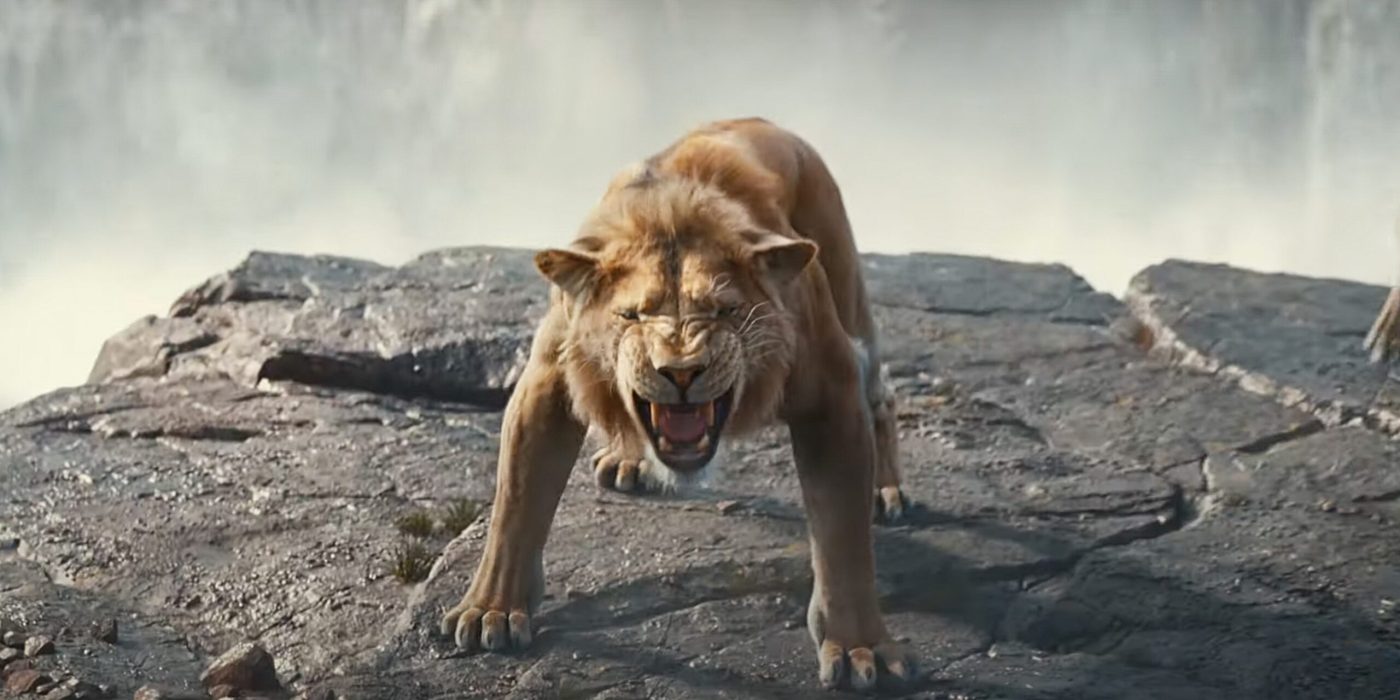
Look, I know arguing against a three-quarter-of-a-billion-dollar box office return is like pissing into the wind, but much like my regard for 2019’s The Lion King and 2023’s The Little Mermaid remake, Mufasa: The Lion King is a film of middling storytelling quality boosted by solid visuals and an audience mostly predisposed to a kick of nostalgia. The film’s voluminous adoration of itself is evident in every frame; the production value is superb but can’t hide a neutered sense of tension or emotional weight. Although Jenkins acquits himself by delivering a better film than Favreau did, the bar is still tremendously low for quality over glossy, beautifully rendered blandness.

